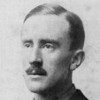“ The man who feels the full distress of the calamity which has befallen him, who feels the whole baseness of the injustice which has been done to him, but who feels still more strongly what the dignity of his own character requires; who does not abandon himself to the guidance of the undisciplined passions which his situation might naturally inspire ”
Adam Smith, The Theory of Moral Sentiments (1759). copy citation
| Author | Adam Smith |
|---|---|
| Source | The Theory of Moral Sentiments |
| Topic | passion distress |
| Date | 1759 |
| Language | English |
| Reference | |
| Note | |
| Weblink | https://en.wikisource.org/wiki/The_Theory_of_Moral_Sentiments |
Context
“A stupid insensibility to the events of human life necessarily extinguishes all that keen and earnest attention to the propriety of our own conduct, which constitutes the real essence of virtue. We can feel little anxiety about the propriety of our own actions, when we are indifferent about the events which may result from them. The man who feels the full distress of the calamity which has befallen him, who feels the whole baseness of the injustice which has been done to him, but who feels still more strongly what the dignity of his own character requires; who does not abandon himself to the guidance of the undisciplined passions which his situation might naturally inspire; but who governs his whole behaviour and conduct according to those restrained and corrected emotions which the great inmate, the great demi-god within the breast prescribes and approves of; is alone the real man of virtue, the only real and proper object of love, respect, and admiration.”
source



